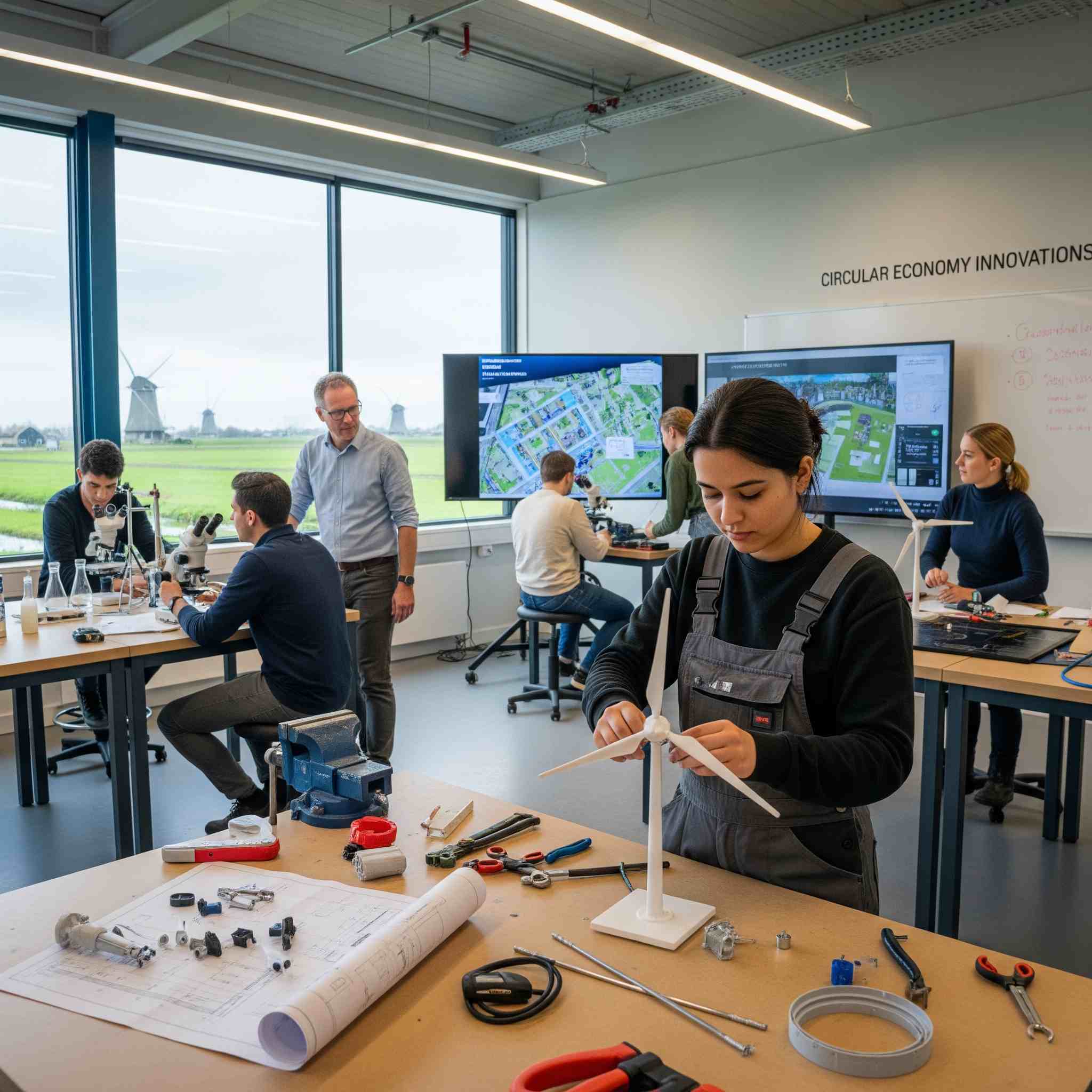The Netherlands is a standout study destination for students who want innovative education, global exposure, and a supportive learning environment. Dutch universities are known for practical, research-driven teaching that encourages creativity, critical thinking, and problem-solving. With a wide range of English-taught programs, international students can study without language barriers. The country offers a welcoming, multicultural atmosphere and a high quality of life, making it easy to adapt. Tuition fees and living costs are often more affordable than in many Western countries, adding strong value. Clear post-study work opportunities, including the one-year Orientation Year visa, make the Netherlands an appealing choice for long-term growth.
Student-friendly cities
The Netherlands offers student-friendly cities like Amsterdam, Utrecht, Eindhoven, and Groningen. Known for safety, excellent public transport, and international communities, they balance study and lifestyle perfectly.




